Only a few people have been able to climb the Tour Saint-Jacques, a single tower that rises in the centre of Paris. Many don’t even notice the monument as their paths lead them straight to famous landmarks in the vicinity: Notre-Dame, Sainte-Chapelle, the banks of River Seine… and the shopping precinct of rue de Rivoli. Here is a selection of photos taken during our ascent. At the end of the article, I’ll tell you how you can plan your ascent to the tower and enjoy breathtaking views over Paris!
What about Tour Saint-Jacques?
Bearing witness to the past of the Right Bank, the Saint-Jacques Tower is a Parisian monument that cannot be overlooked. Since its full restoration in the 2000s, the former bell tower of a church which no longer exists has been opened to the public by its owner, the Municipality of Paris. We booked in advance and came to visit the inside and the top of the tower yesterday.
Situated in the neighbourhood of Châtelet in the 4th arrondissement of Paris, the curious Saint-Jacques Tower stands alone, surrounded by the trees and lawns of the Square de la Tour Saint-Jacques.
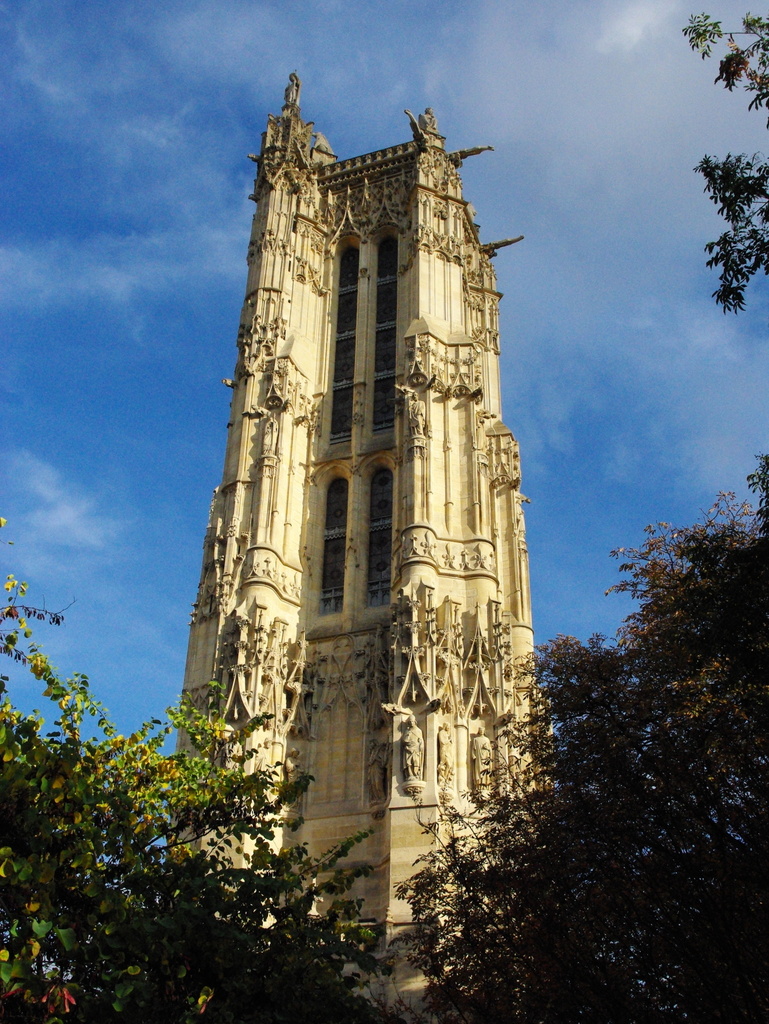
From the public garden, the Flamboyant Gothic features of the tower are clearly visible, particularly at the top of the tower:
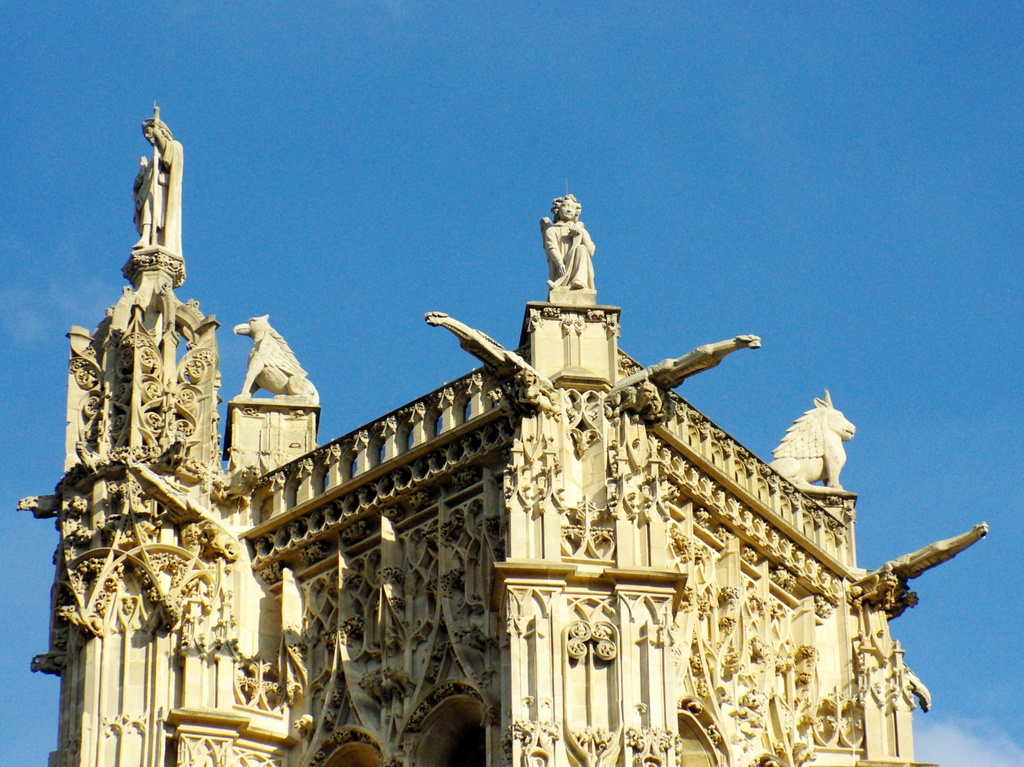
To the top of the Tour Saint-Jacques
Please note! This account dates back to our last ascent to the tower in 2015. Since then, a few things have changed (a different tour agency, the great fire of Notre-Dame, etc.), which explained you might have only a slightly different experience.
We started our guided tour of the tower at the west side gate, where the friendly guide welcomed us. Around 12 people joined the group, and the visit started at 10 am at the base of the tower for a historical presentation of the tower.
By the statue of Blaise Pascal, the tour guide explained the troubled past of the former church of Saint-Jacques-de-la-Boucherie and the destiny of its bell tower, which was saved from demolition during the French Revolution. Now we are ready for the ascent of 300 steps!
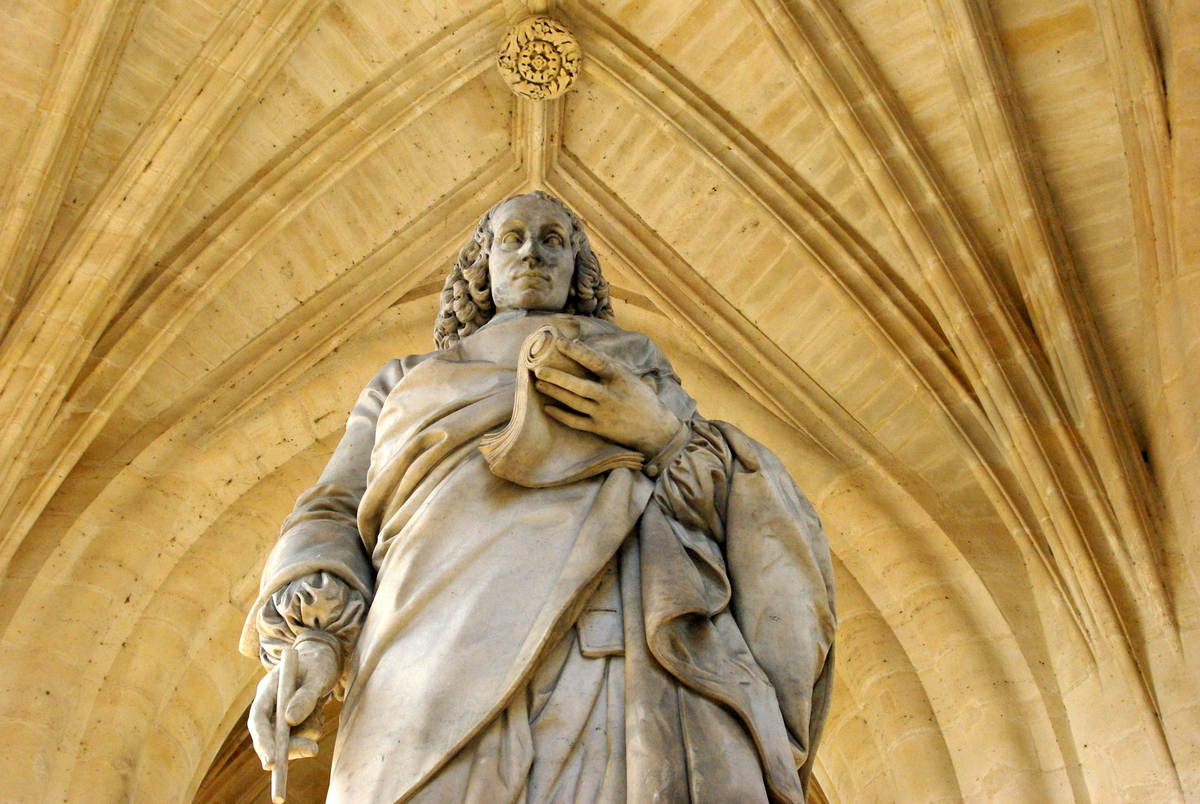
Following the presentation, we climbed a short flight of spiral stairs to reach the first floor. Inside were artefacts left by the craftsmen who participated in the recent restoration. The tour guide explained the phases of restoration from the 19th century to the 2000s.
The 19th-century restoration
The 19th-century restoration programme took place at a time when Gothic architecture was rediscovered.
Under the auspices of writers (Victor Hugo) and with architects’ passion, many Gothic churches and monuments were restored.
Viollet-le-Duc is famous for its work on Carcassonne, Pierrefonds and notably Notre-Dame Cathedral, where he added fantastic creatures made of stone: the chimeras.
Tour Saint-Jacques was no exception to the rule, and many additions were made when restoring the site. An example of this is the beautiful siren (see photo below) added in the 19th century to the tower’s façade, knowing that sirens were not at all fantastic creatures depicted in the Middle Ages!
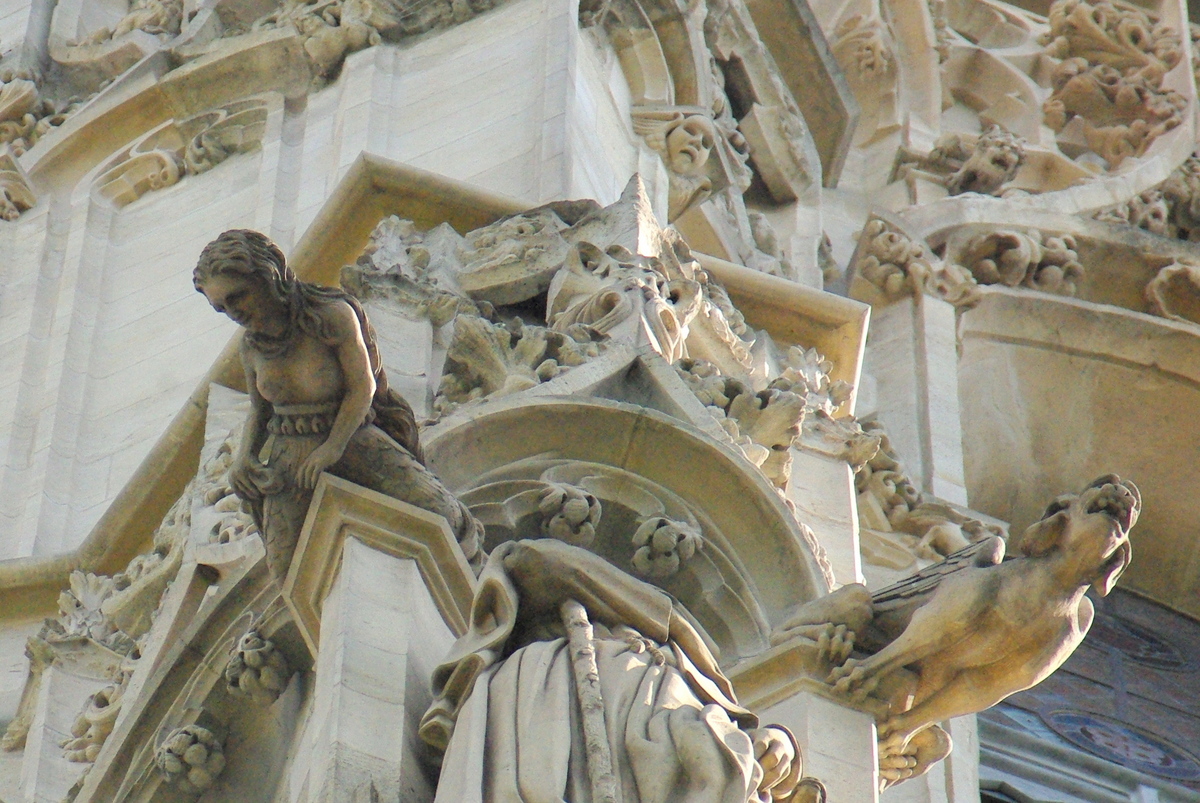
The location of the former bells
The second flight of stairs of approximately 80 steps led us to another fascinating floor where the ceiling is the actual top of the tower. The tower housed a carillon with 12 bells when it was the bell tower of the church. It was one of the finest in Paris after that of Notre-Dame Cathedral.
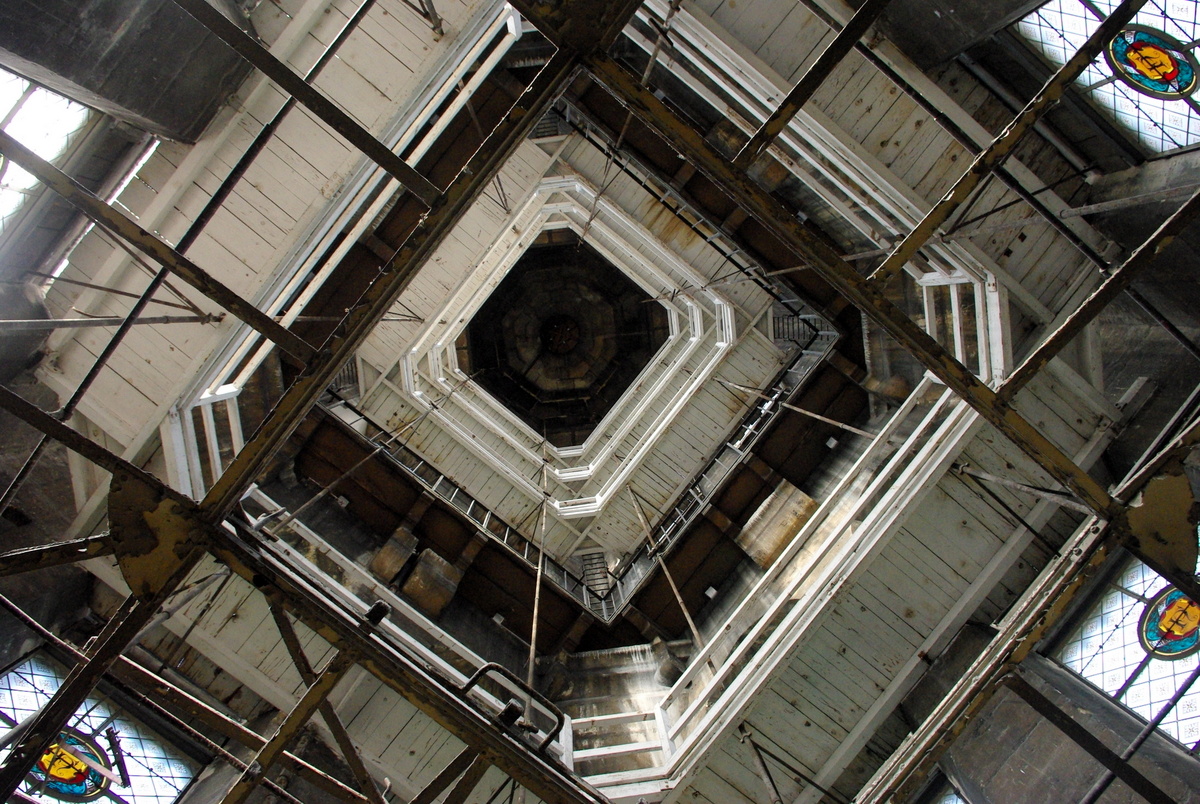
Reaching the platform
The longest climb finally got us to the tower’s summit at 60 metres high, where the group discovered one of the most beautiful views of Paris. For our tour guide, it is the most stunning view due to the central position of the tower: a 360-degree view makes the monuments and landmarks of Paris so close and offers unexpected perspectives.
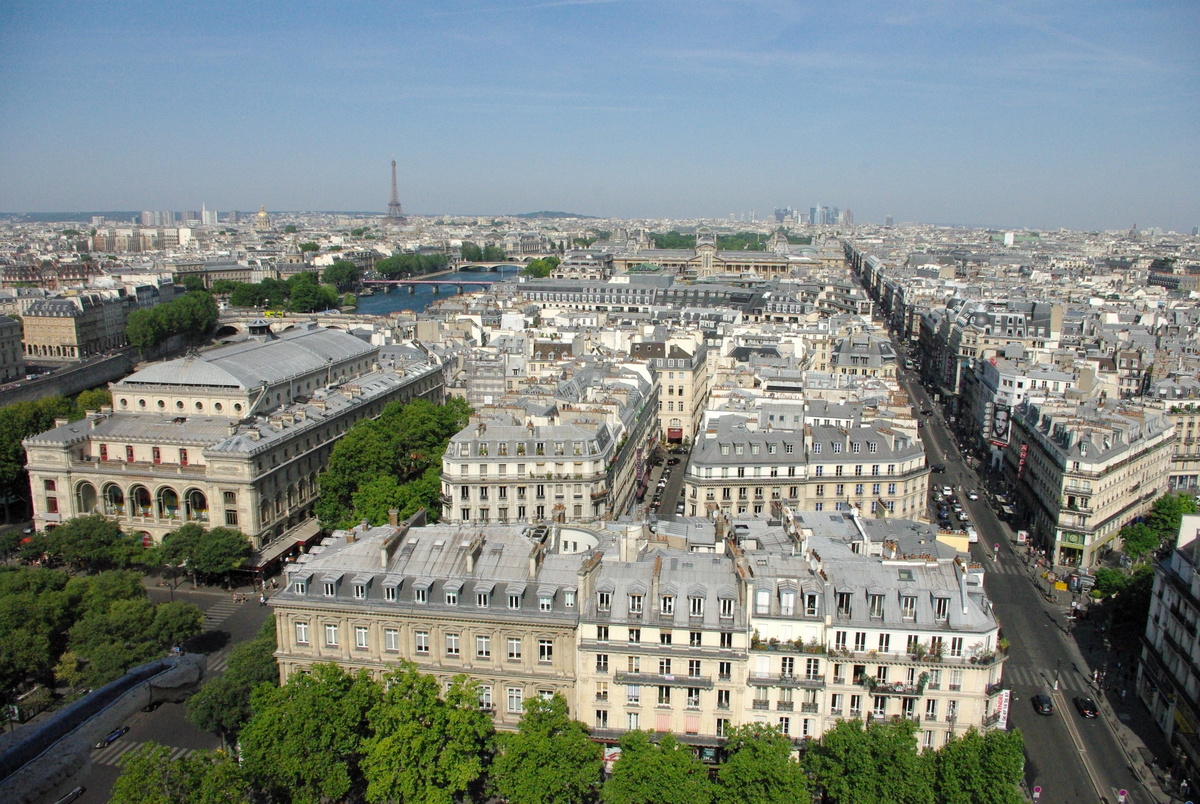
With a good lens, the Eiffel Tower reveals its iron laces. In the forefront rises the neo-Gothic basilica of Sainte-Clotilde:
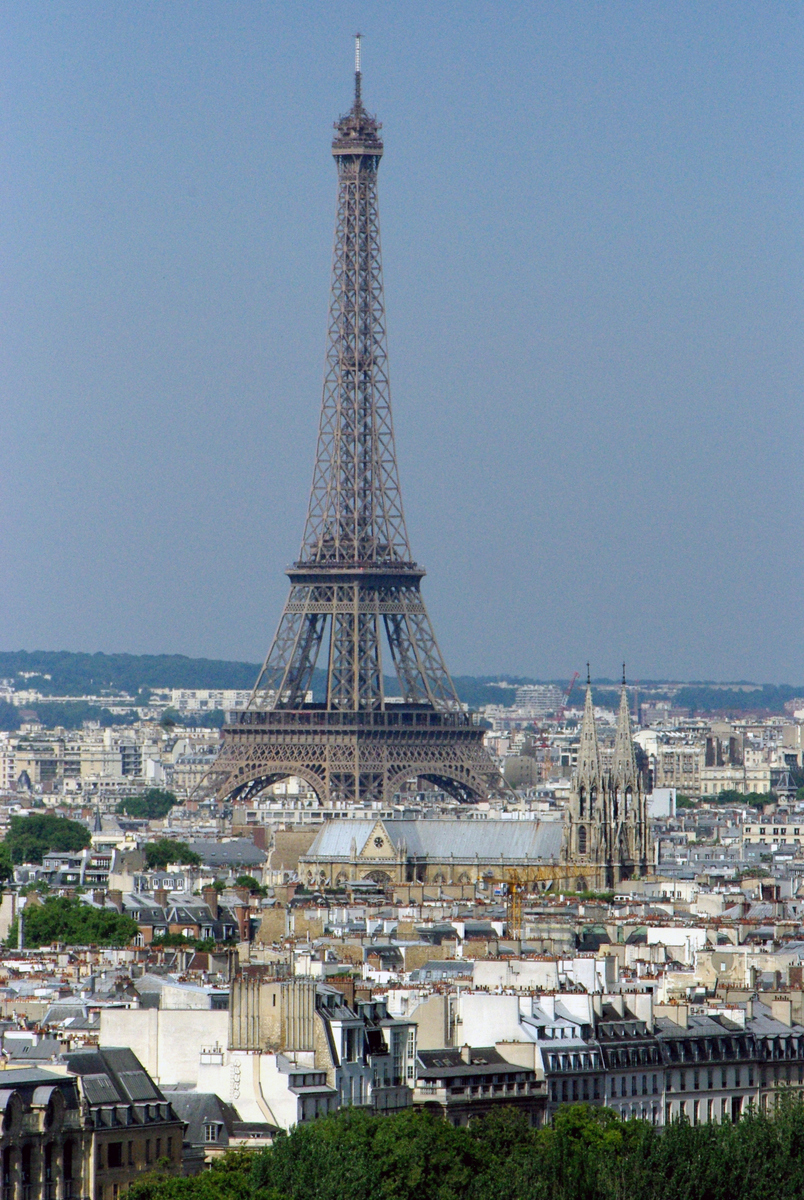
View of the Île de la Cité in the forefront and the Left Bank in the background. You can spot several monuments: the Tribunal de Commerce, the Conciergerie and Sainte-Chapelle, the Saint-Sulpice and Saint-Germain-des-Prés churches, the Montparnasse Tower and the Panthéon (under restoration):

The long façade of the Conciergerie on the Île de la Cité with the neighbourhood of Saint-Germain-des-Prés behind it. You can see the dark skyscraper of Montparnasse Tower in the background:
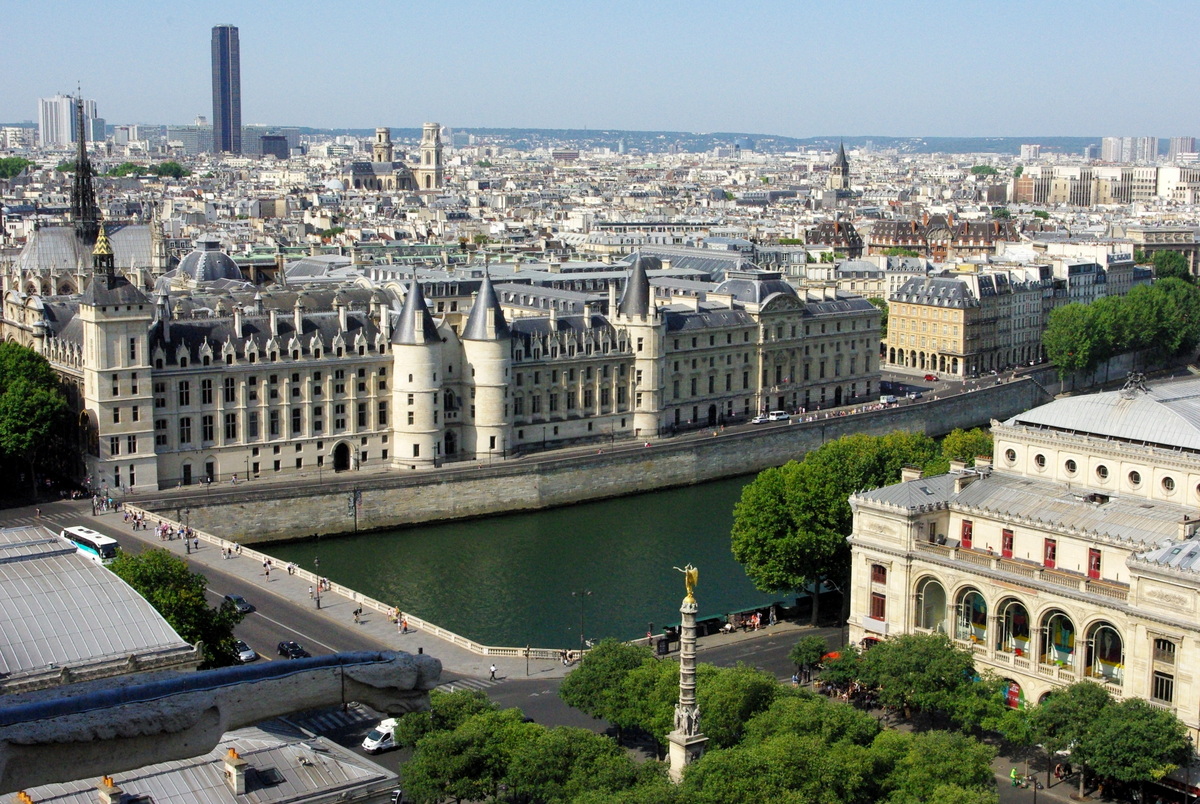
A gargoyle overlooking the first arrondissement of Paris:
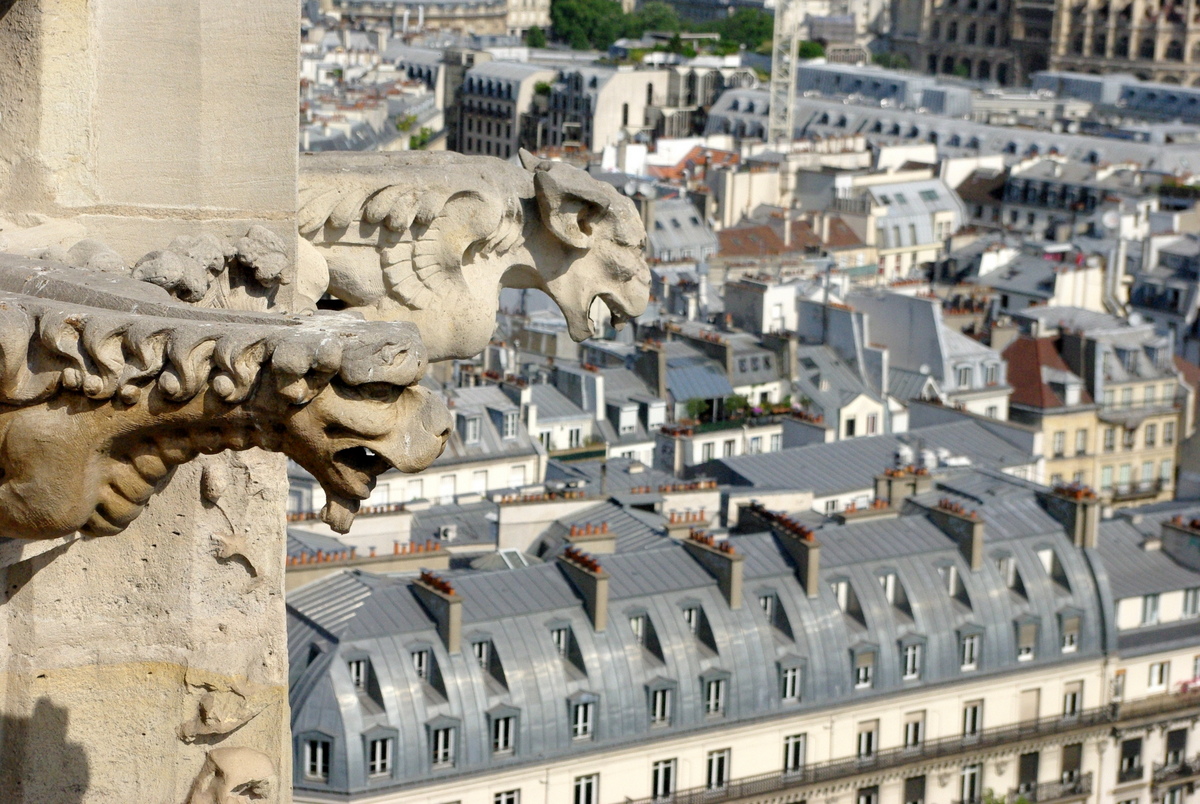
The modern structure of the Pompidou Centre and the Gothic church of Saint-Merri in the forefront:
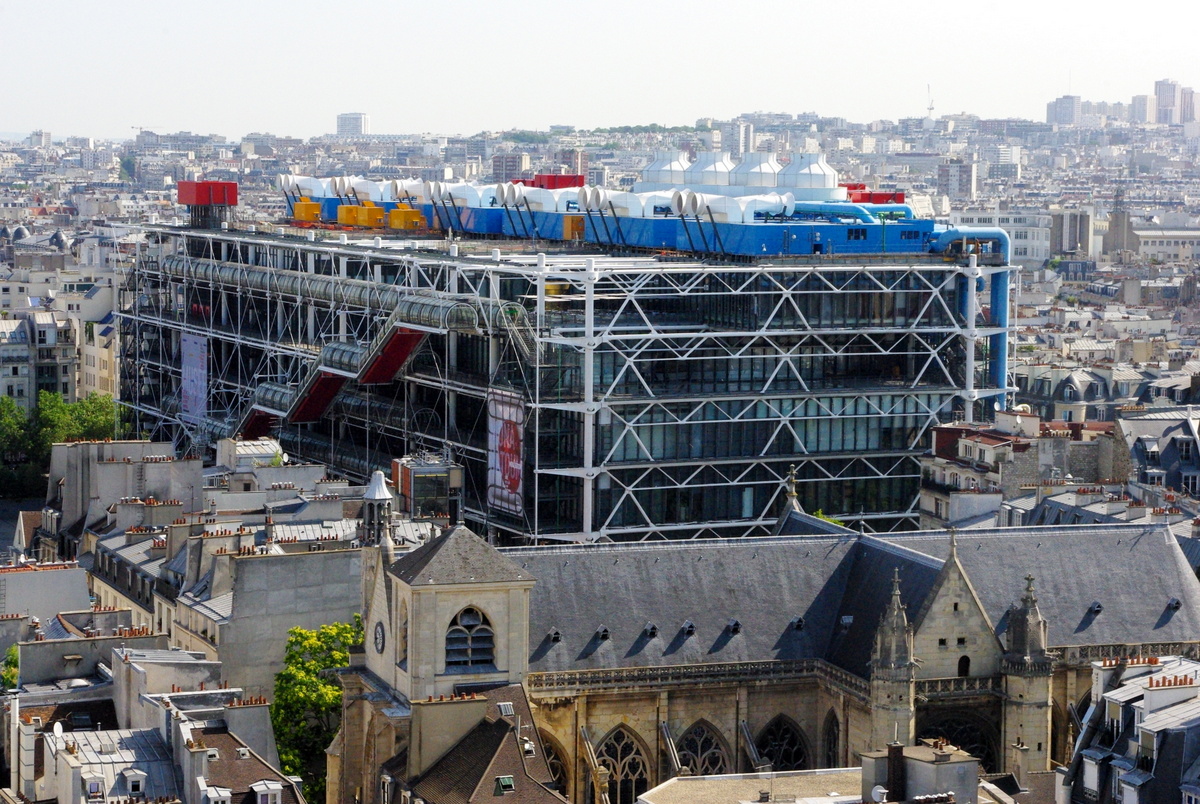
The best place to view Haussmann’s work
A stunning view reveals the work of Baron Haussmann in the mid-1850: boulevard de Sébastopol leading to the Gare du Nord. The shady street marks the boundary between Paris’s 1st (left) and 4th (right) arrondissements. To the left, the neighbourhood of Les Halles (with the new canopy and Saint-Eustache church) and the hill of Montmartre:
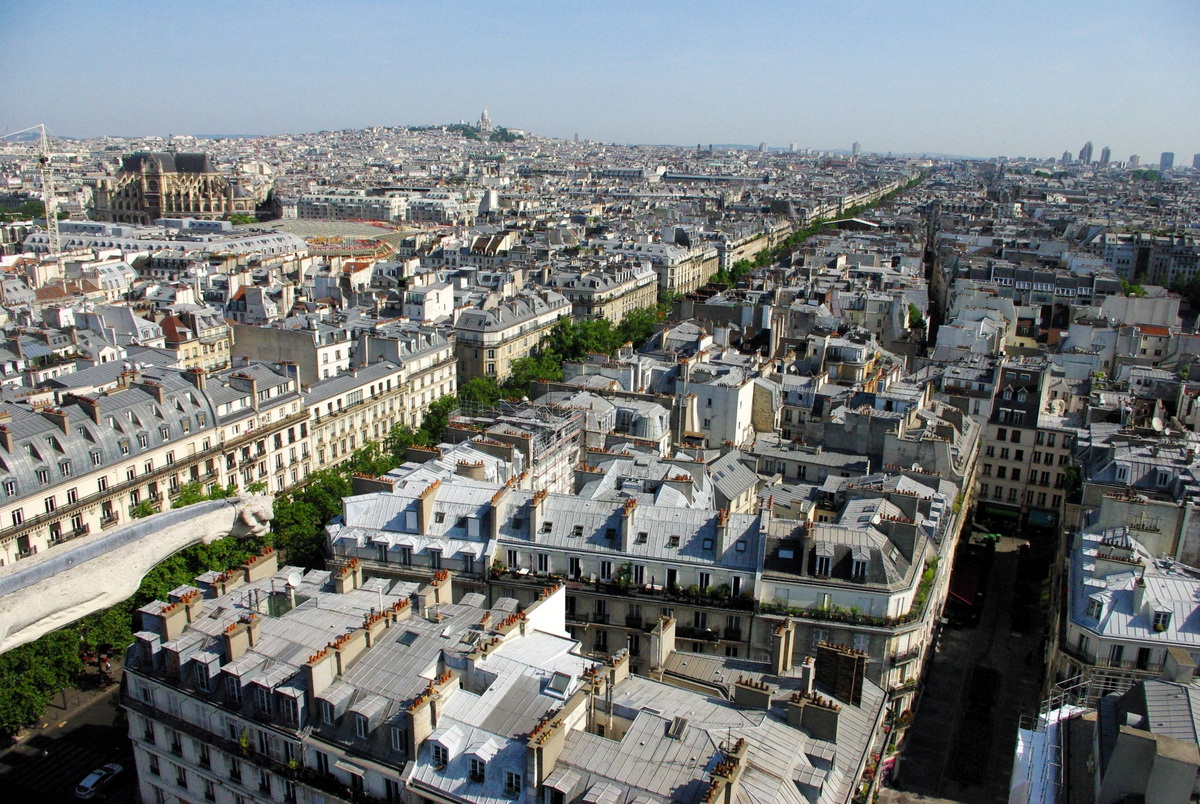
To the left: the perspective of rue de Rivoli leading up to the Place de la Concorde. You can see the CBD of La Défense in the background.
To the right: the district of Les Halles with Saint-Eustache church and the hill of Montmartre.
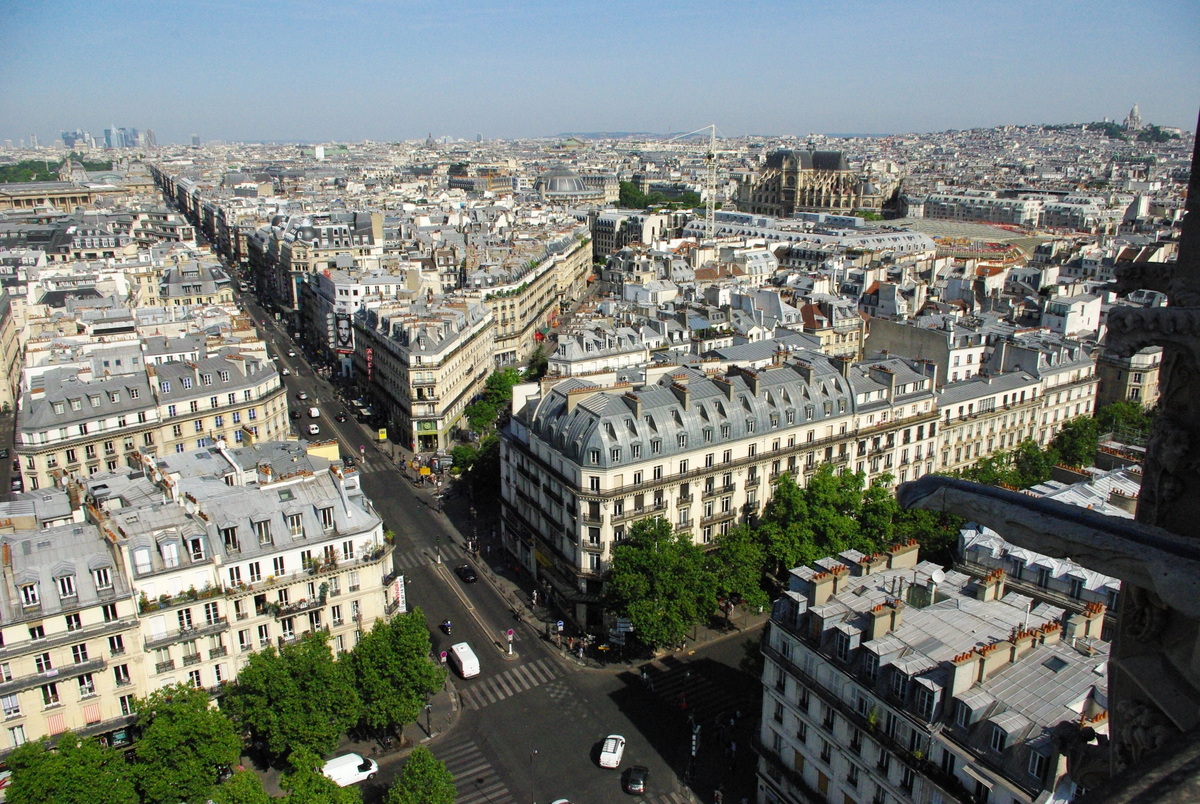
A closer look at the perspective of rue de Rivoli created by Baron Haussmann in the mid-1850s:
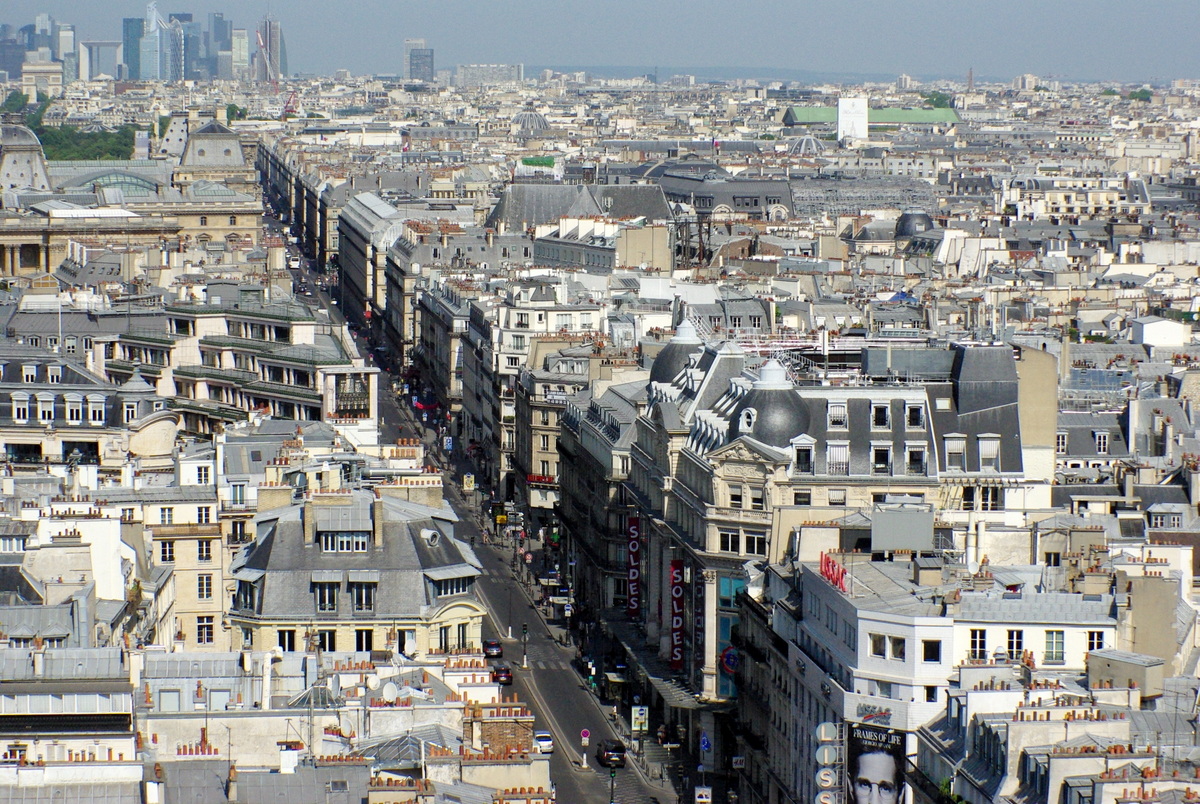
A stunning view of the Historical Axis of Paris (la Voie Triomphale). From the Louvre, the axis runs through the Tuileries Garden, the Place de la Concorde (see the Luxor Obelisk), the Champs-Élysées, the Arc de Triomphe and the Grande-Arche de la Défense (under restoration in 2015):
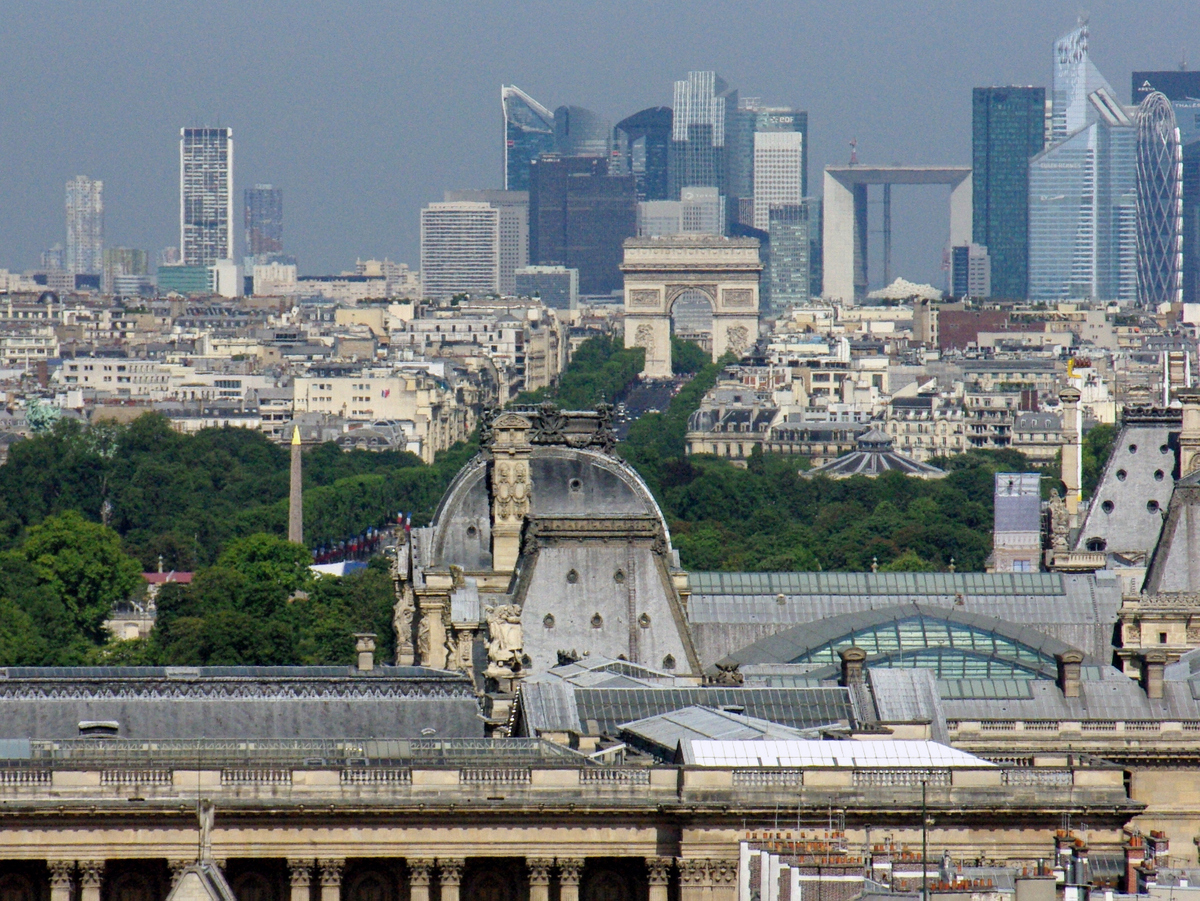
The Musée d’Orsay and the banks of River Seine:
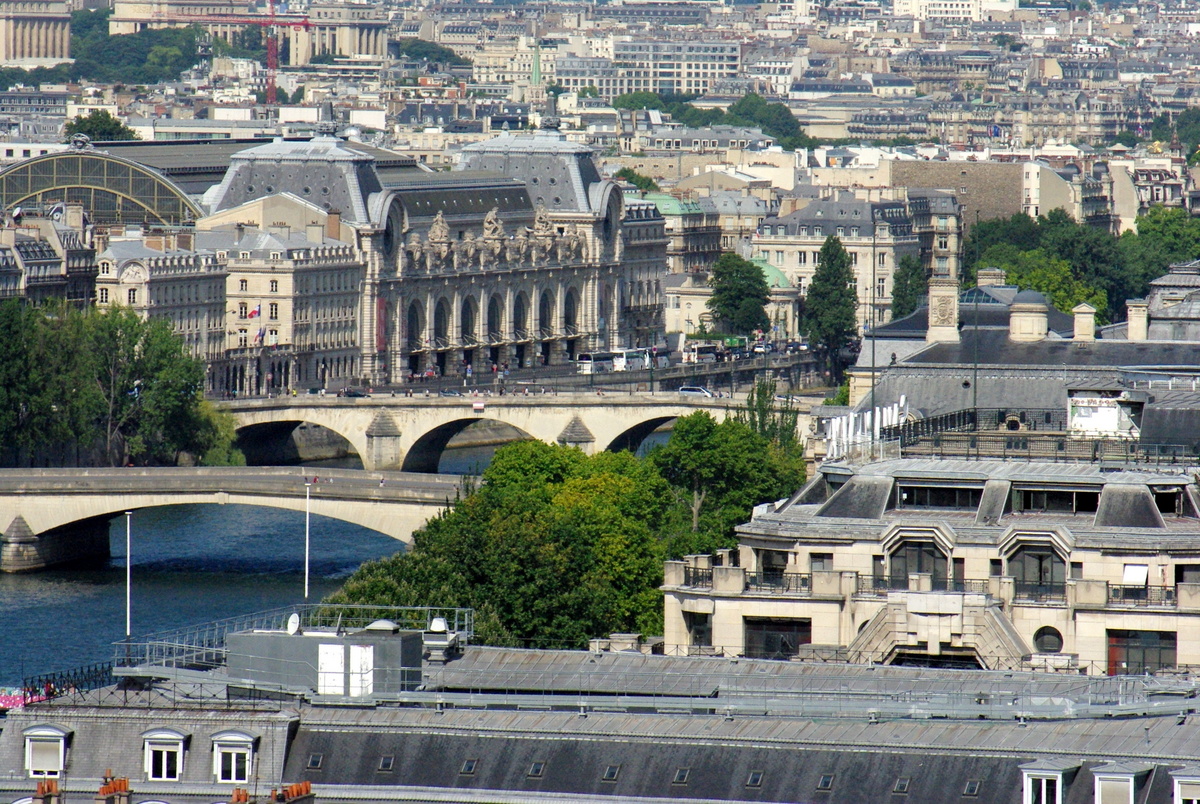
The Pont des Arts without the love-locks! In 2015 the City of Paris replaced the locks with temporary pinkish deck rails before the installation of new transparent panels:
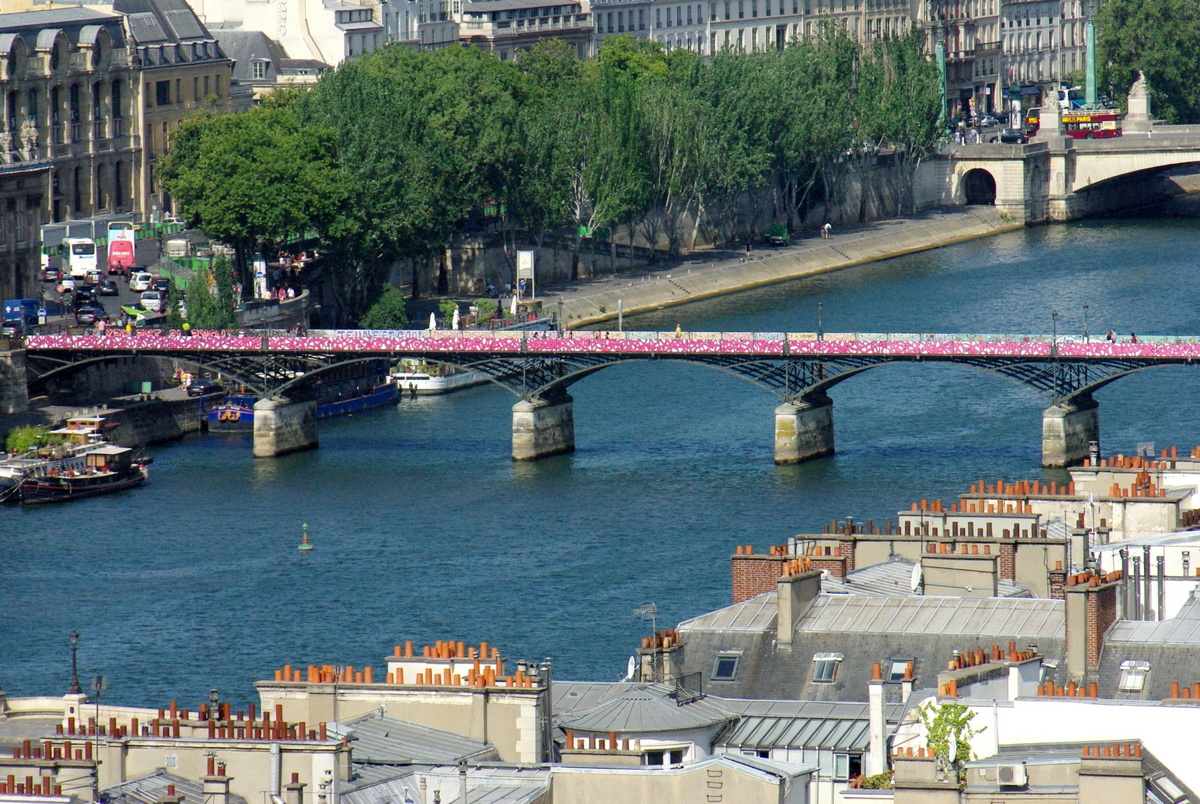
The best place to see the landmarks of Paris
Two domes in the same picture: the small dome of the Institut de France and the golden dome of Les Invalides:

In the forefront is the dome of the Bourse du Commerce (1st arrondissement) and the massive complex of Opéra Garnier in the background:
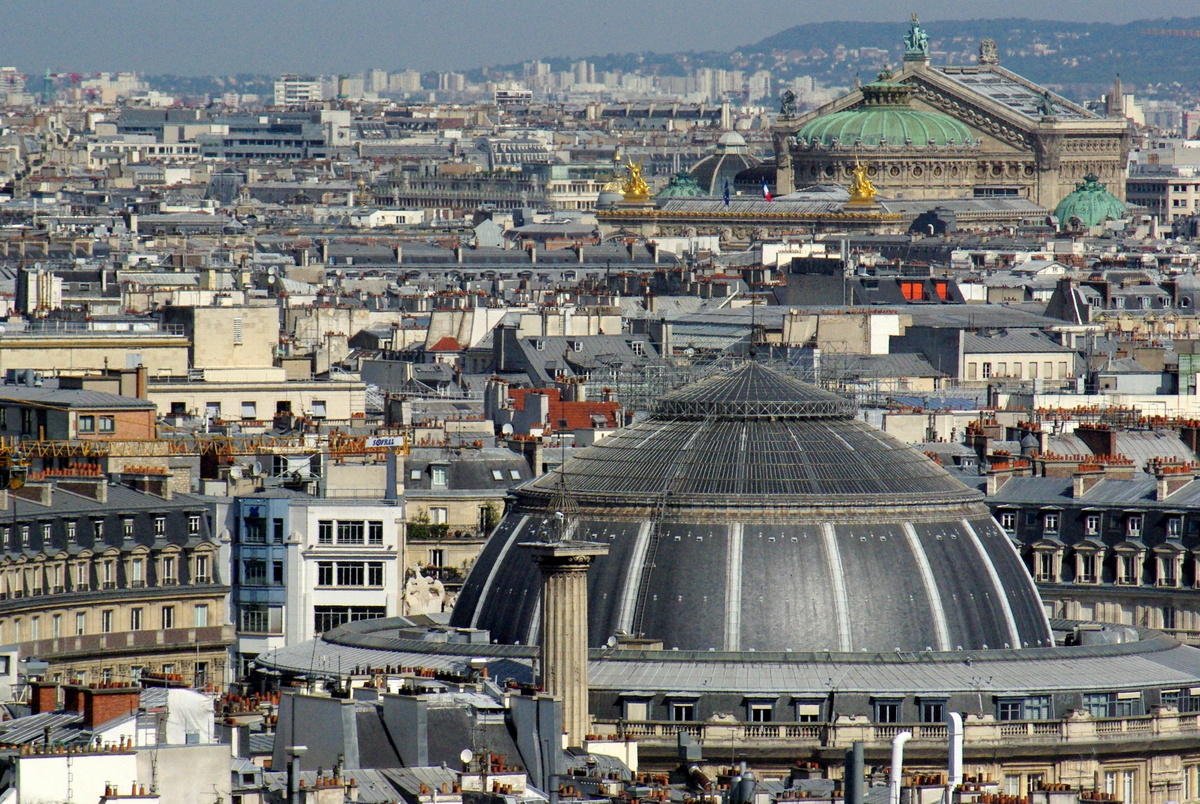
The Sacré-Cœur Basilica standing atop the hill of Montmartre:
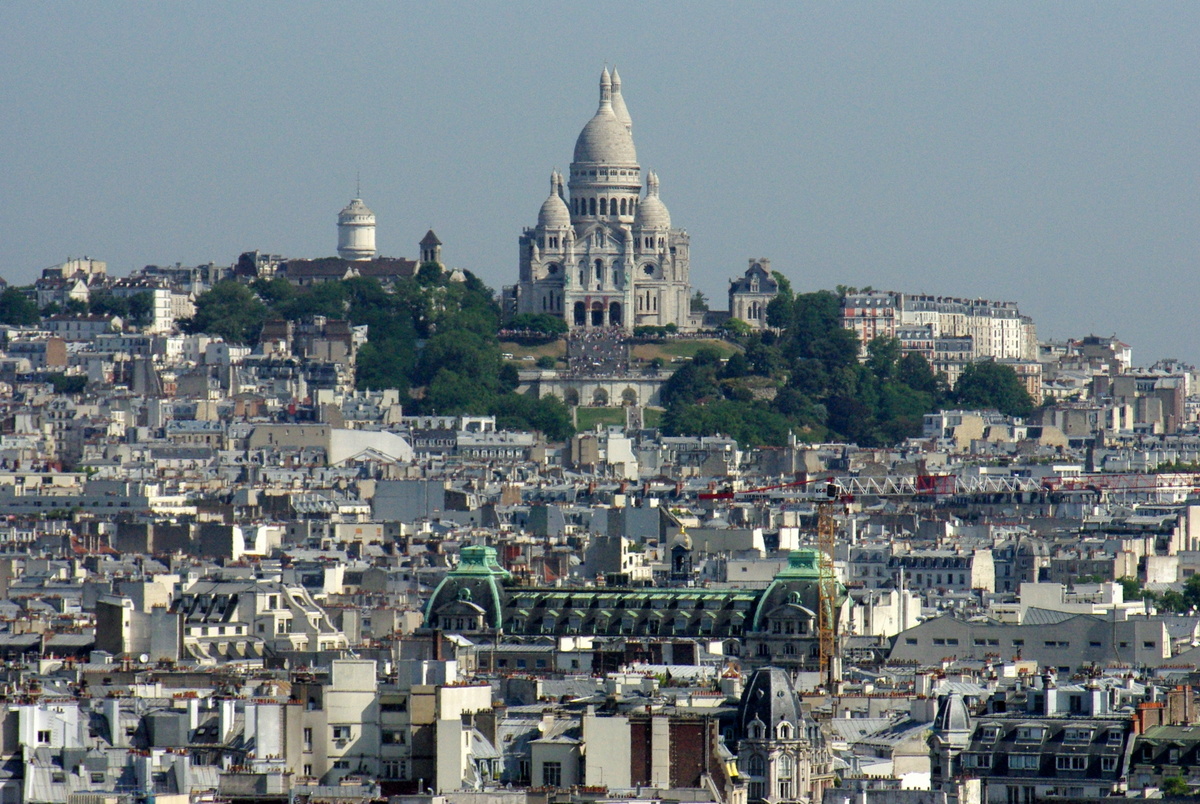
A closer look at the church of Saint-Eustache, one of Paris’ most beautiful churches:
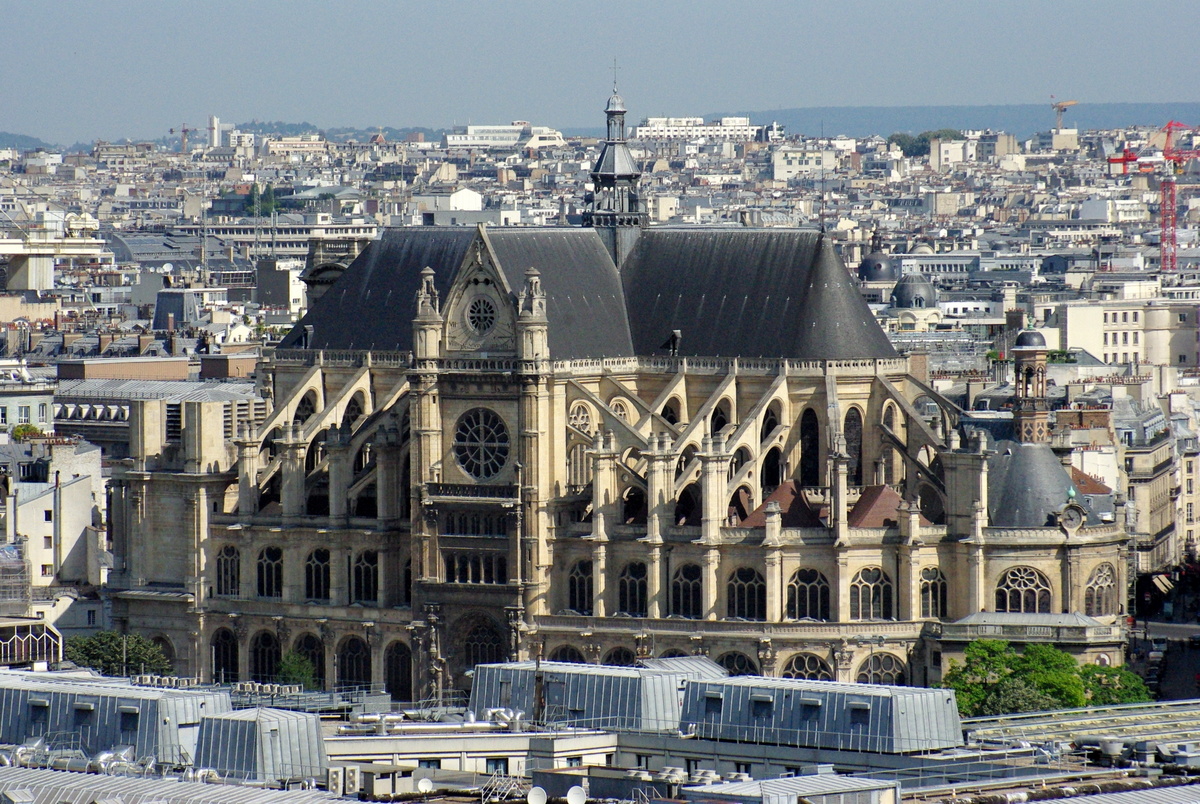
The Rue de Rivoli and Rue Saint-Antoine looking eastwards (4th arrondissement):
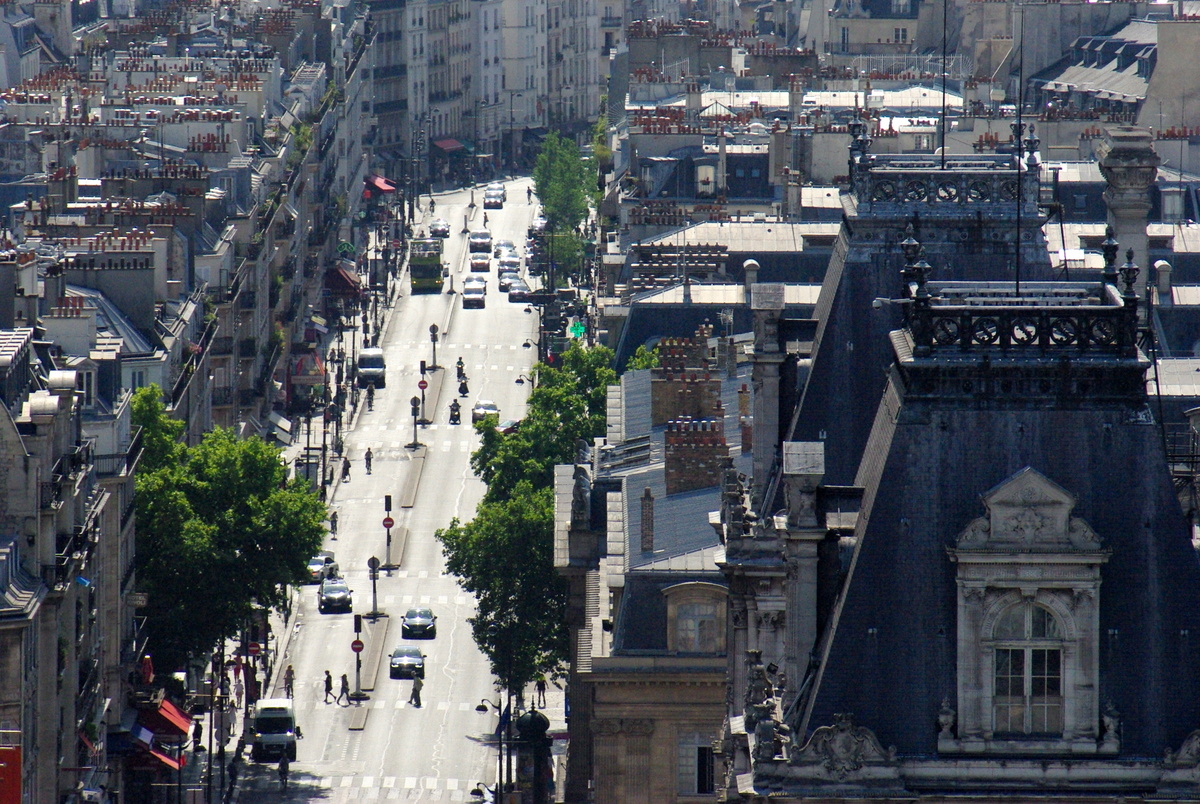
The Romanesque bell tower of Saint-Germain-des-Prés, one of the oldest churches in Paris:

The Île Saint-Louis and its romantic quays:

A closer look at the Gothic features of the Palace of Justice with the towers of the Conciergerie and the Sainte-Chapelle:
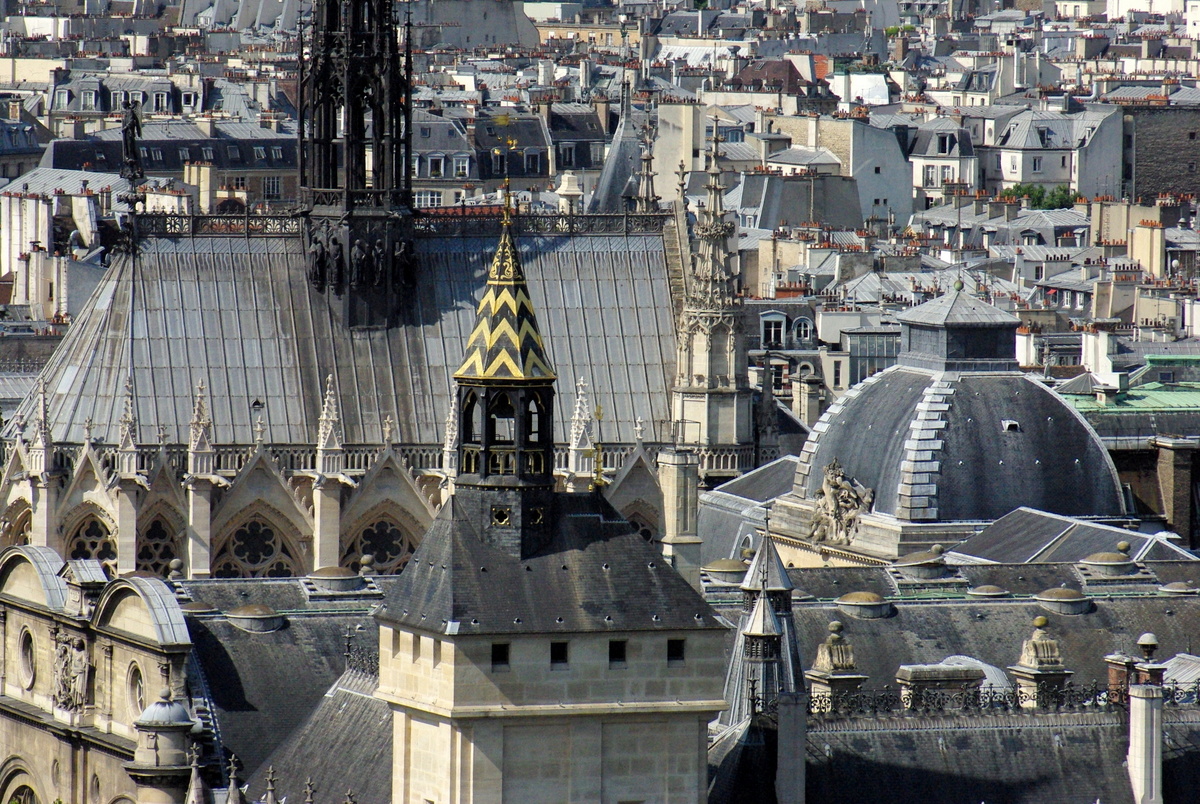
Saint-Sulpice (6th arrondissement), Paris’ second biggest church after Notre-Dame cathedral:
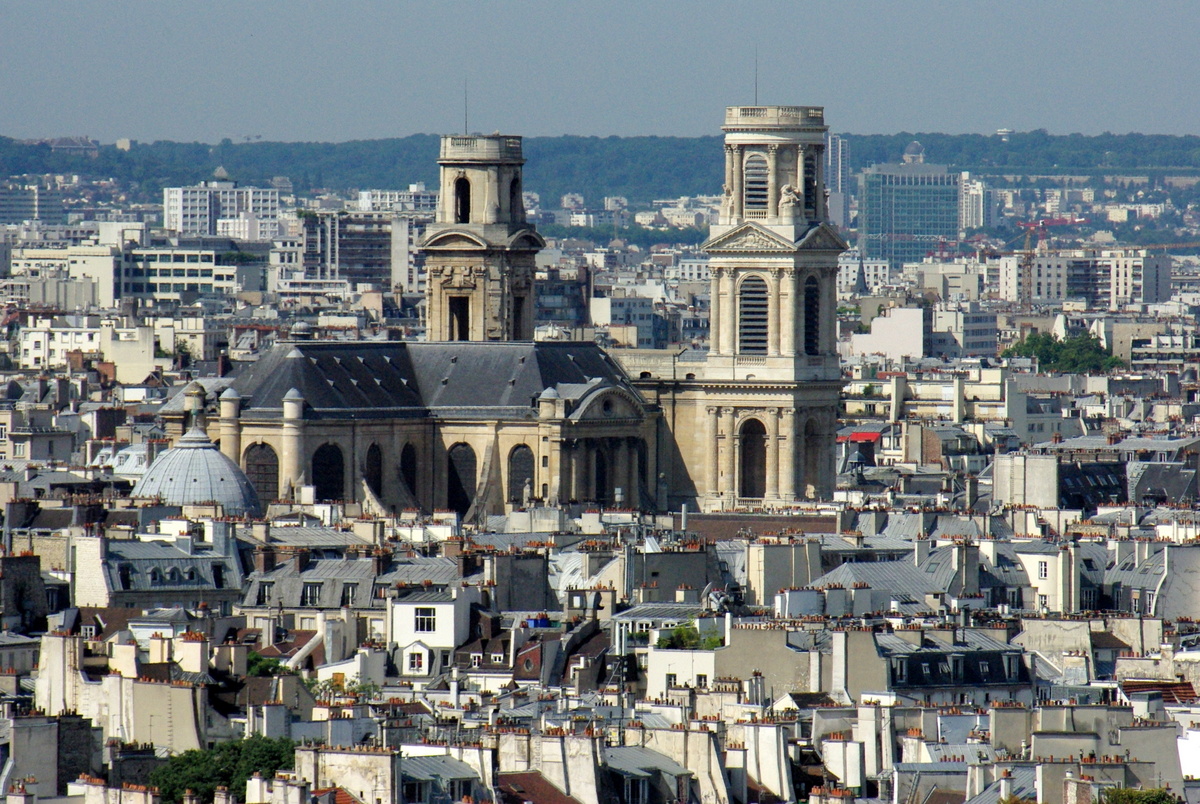
The trees of boulevard Saint-Michel, marking the boundary between the 5th (left) and 6th (right) arrondissements:
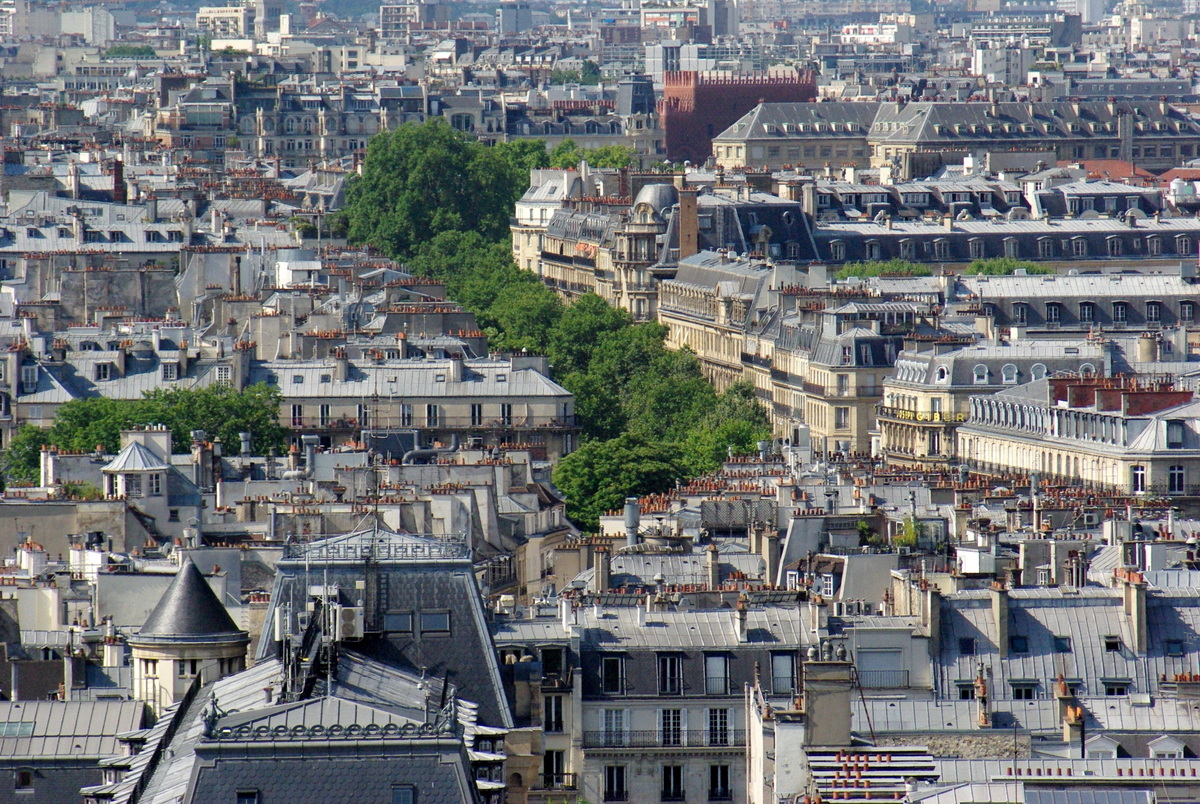
The Panthéon and its impressively tall crane (2015-2016 restoration):
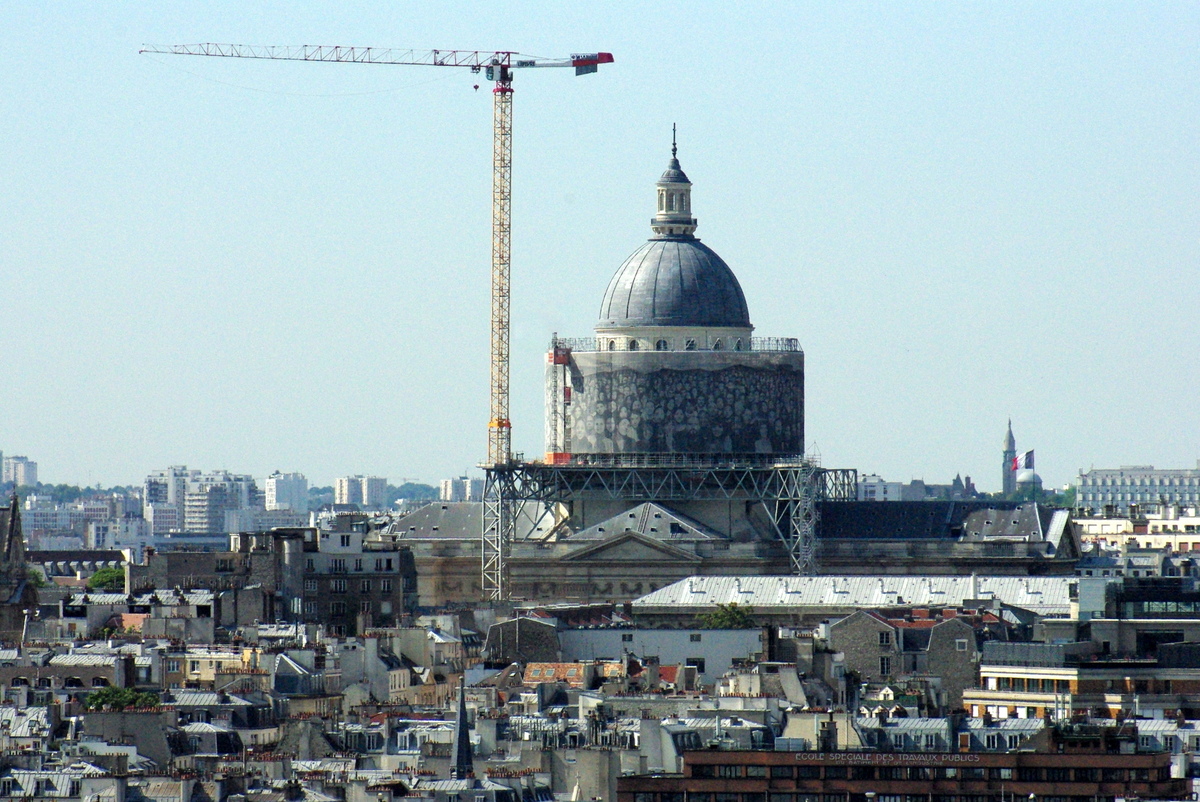
The Fontaine du Palmier (Palm tree fountain) overlooks the Place du Châtelet and the banks of the River Seine:
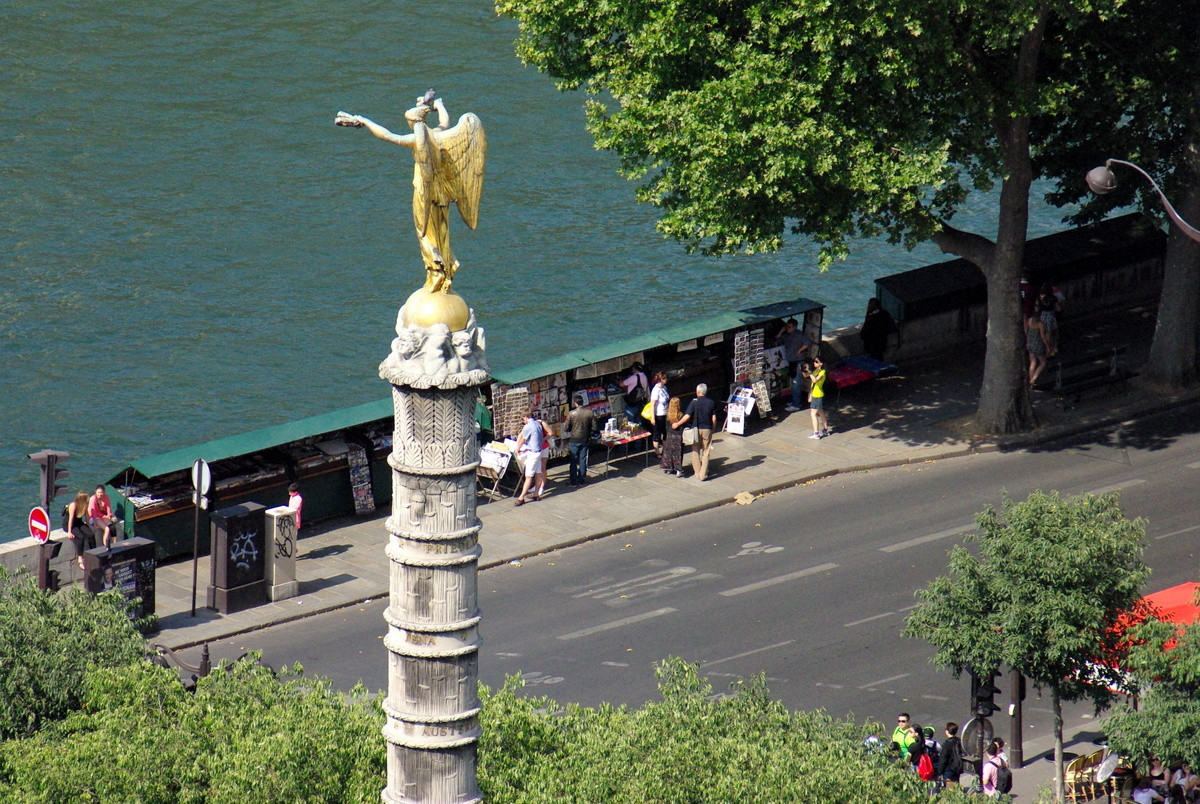
How to book the climb!
To visit the monument, book online here.
Fees: Adult: 12 euros, Concession: 10 euros.
Please note:
- The climb is not accessible to children under ten years old.
- The ascent can be difficult as it takes place through a long narrow spiral staircase.
- Therefore, it is best to be in (very) good physical condition and not be prone to dizziness or claustrophobia.
Opening times (2022)
- From Friday 10 June to Sunday 13 November 2022
- Every Friday, Saturday, and Sunday
- From 10 am to 6 pm.
The guided tour proposed by the MagmaCultura agency retraces the history of the former bell tower of the Saint-Jacques-de-la-Boucherie church, which has dominated the landscape of the right bank of the Seine for five centuries.

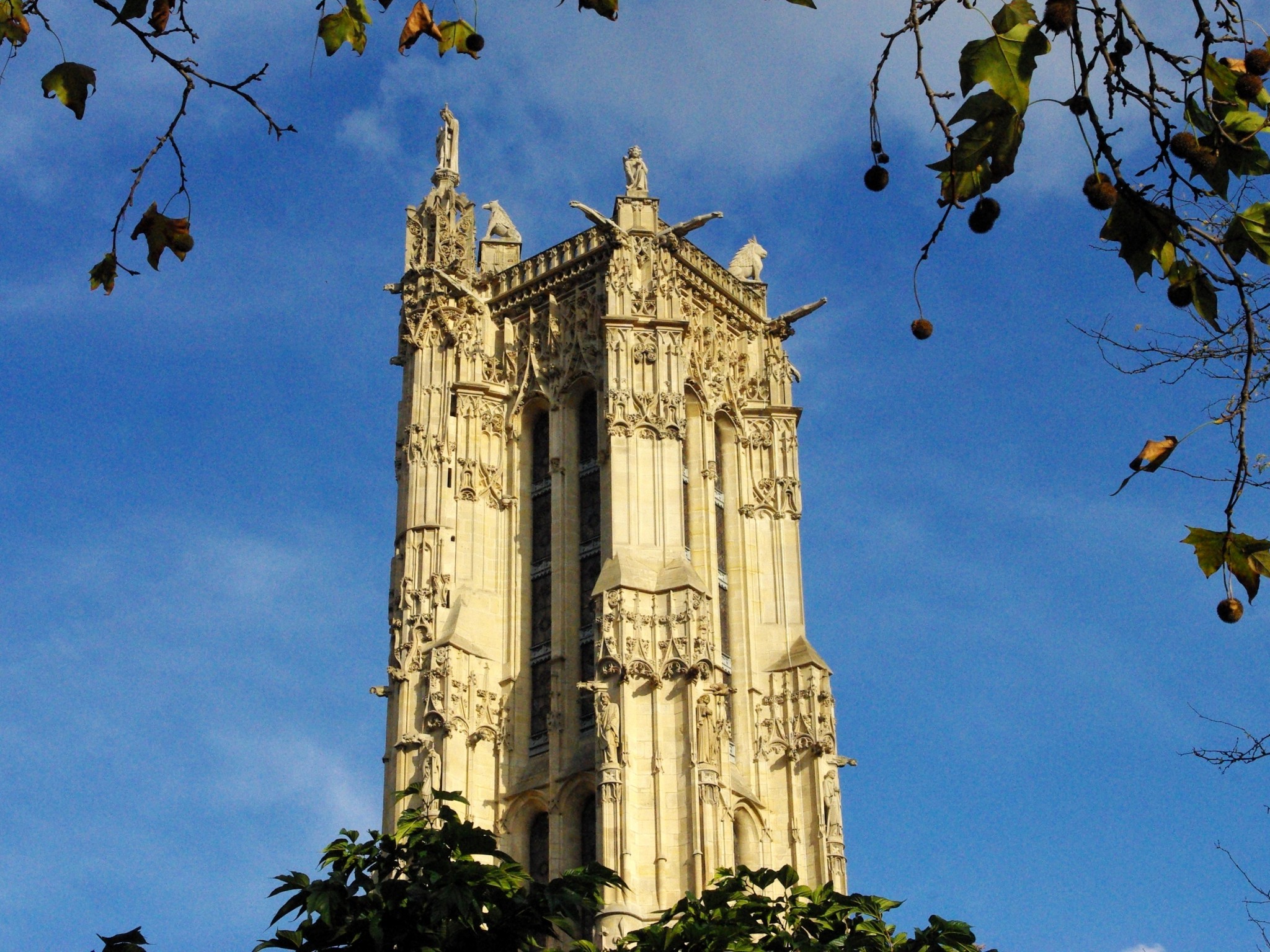


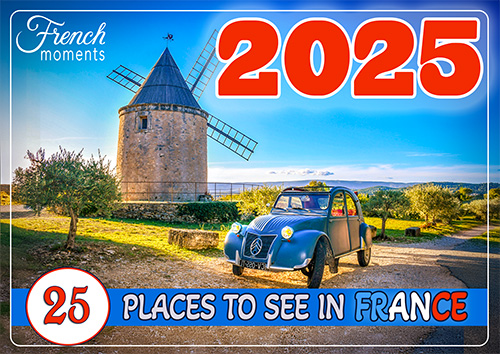
I finally timed my 10th visit to Paris correctly and was able to do the tower tour in September ‘21. Five of us were guided by two very pleasant and knowledgeable young folks who seemed to truly enjoy their work. I’ve been to just about all of the “high” points from which to view the city, and the Tour Saint-Jacques is right there near the top. You’re high enough to see a lot, but not so high that you lose perspective of the details. The climb, if you are healthy enough, is well worth the effort! 🤙🏽
Thank you, Greg for telling us about your visit (and climb!) to the Tour Saint-Jacques!